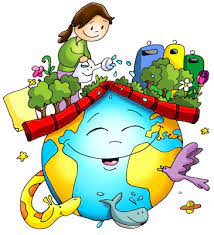OUR COMMON HOME IS LOSING ITS BEAUTY
- Hnasmdro
- octubre 16, 2023
- MDR Experiences
- 0
- 279
Mountains are sponges that absorb the water that the planet needs. They conserve the water required for the subsistence of living beings. In the southern region there is a circuit of mountains between the Sierra de Bahoruco and the Sierra de Neyba. In these Sierras, there is a dense population of endemic flora and fauna. There are also abundant rivers, the most important of which is the Yaque del Sur, which, besides being used for daily consumption and the watering of the banana plantations and other products of the region, serves to calm the suffocating heat typical of the south of the country.

The destruction of the Sierra de Bahoruco is being exploited in an excessive way by foreign companies coming to the country to destroy the environment. They destroy mountains and forests to extract calcium sulfate, salt mines, gypsum, Larimar for export, thus destroying these natural lungs.
I quote in full the following article which expresses part of the reality of the environment in the south of the country, a region where we MDRs are on mission: “Environmental experts from the Autonomous University of Santo Domingo (UASD), and the Ecological Society of the city of Santa Cruz de Barahona, have shown concern about the heavy machinery that the Hotel and Real Estate Development Project Perla del Sur has been tearing down the mountain “El Derrumbao”. It is located between the San Rafael River and the community La Cienaga where they extract huge rocks to build two large breakwaters on the beach of the aforementioned complex” (https://almomento.net/barahona-expertos-ambientales-temen-destruccion-montana-el-derrumbao/).
At the same time, there is great concern about the Neiba Bay, which is a hydrographic treasure of the coast of Barahona and the most important of the entire southern region. It is threatened to become a pond of polluted water, without marine life and with an unprecedented impact on the environment if solid waste continues to be dumped in its vicinity.
The Encyclical Laudato Si No 32 expresses: “The earth’s resources are also being preyed upon because of short-sighted ways of understanding the economy, of commercial and productive activity….”
The municipality of Cabral, where we live, is called “the water capital” because of the abundance of this precious liquid in the place. There are abundant subway water sources, although it is a pity that these are disappearing as a result of deforestation, plastic waste that is thrown into the rivers, and above all, the presence of the Block Cury factory, whose waste reaches many of the rivers and the Laguna Rincón.
In this regard, the encyclical Laudato Si in No. 29 states: “Groundwater in many places is threatened by the pollution produced by some extractive, agricultural and industrial activities, especially in countries where there is insufficient regulation and controls…”
The Cabral Lagoon serves as habitat for a great variety of native and migratory birds. Also, a large part of the population obtains their family’s sustenance directly from the lagoon through fishing and the watering of crops. In recent years, this lagoon has been losing much of its flow due to the dumping of solid waste and waste from the aforementioned factory.
In the book of Genesis 1, 1ff, we can appreciate how God creates everything that exists in heaven and on earth, everything created good… God said, “Let the earth bring forth vegetation, seed-bearing plants, and fruit trees that throughout the earth bear fruit with their seed in them, each according to its kind.” And so it was. The earth brought forth vegetation, …. each according to its kind. God saw that this was good.” Everything was created by God and been placed upon our hands, for us to care for, to manage, not to destroy: “Today I give you for food every kind of seed-bearing plant that is on the earth, and every kind of fruit tree…”
Pope Francis’ encyclical Laudato Si points to a lack of commitment on the part of people to care for our common home: “Unfortunately, there is a general indifference to these tragedies, which are happening right now in different parts of the world. The lack of reaction to these tragedies of our brothers and sisters is a sign of the loss of that sense of responsibility for our fellow human beings on which every civil society is founded” (Laudato Si No. 25).
Paul’s letter to the Romans 8:22-23 says, “For we know that the whole creation groans and travails in birth together until now. And not only that, but we ourselves also…”
In conclusion, the encyclical Laudato Si is a light in the midst of the darkness of our common home, our environment. At the same time, it is an invitation to pay more attention to ecological issues that concern us all, so that our common home may recover its original goodness and beauty given by the Creator.


